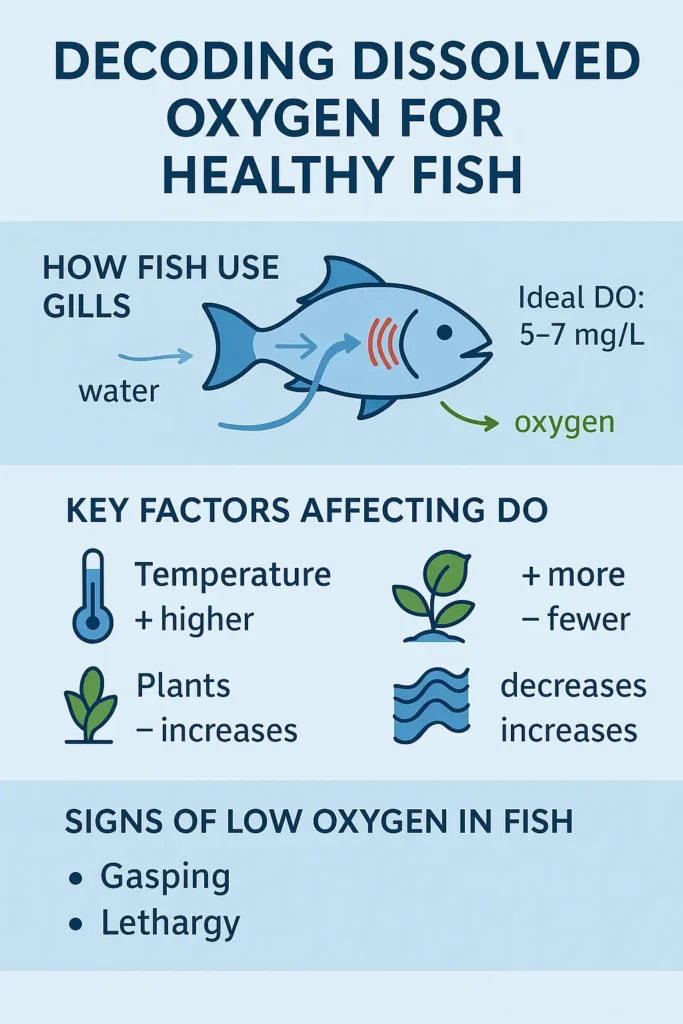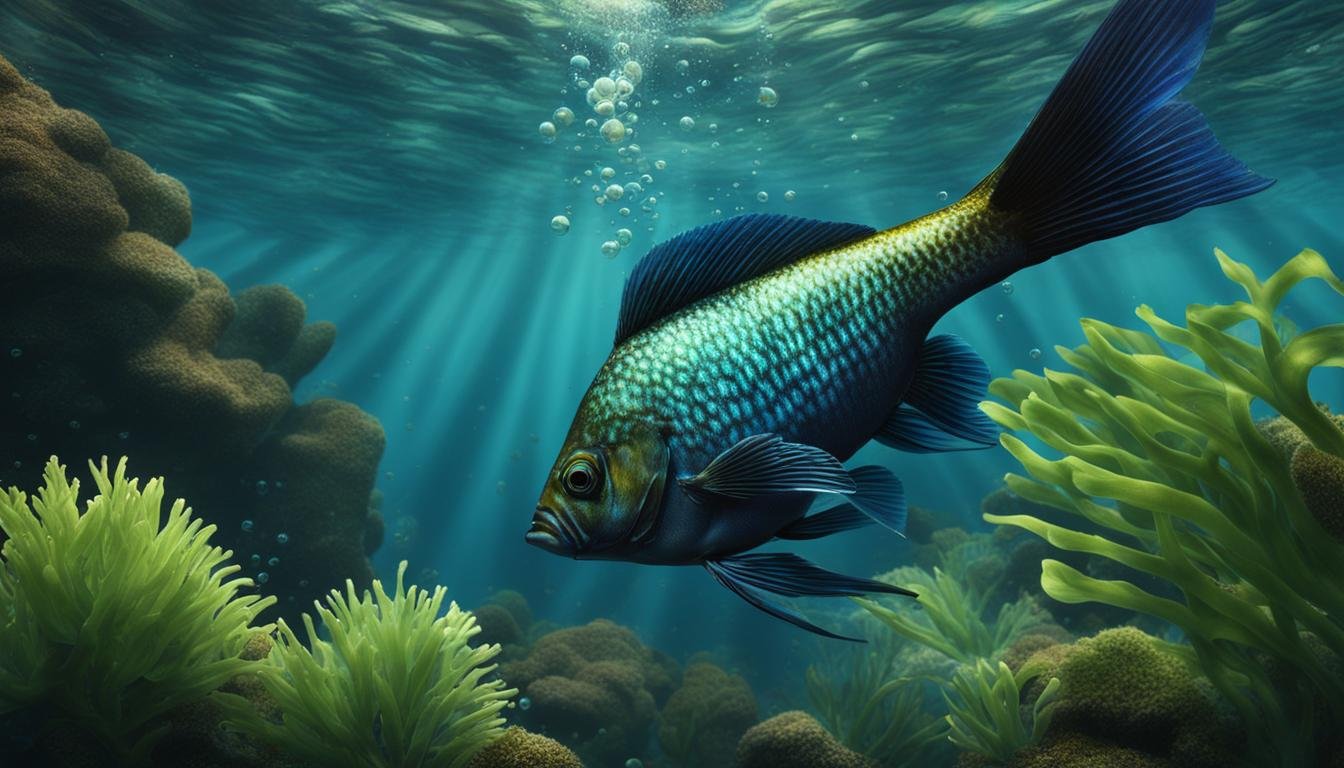Yes, fish absolutely need oxygen to live. They get this oxygen directly from the water they swim in.
In a Nutshell: Do Fish Need Oxygen
- You will learn how fish get the oxygen they need.
- You will see what makes oxygen levels in water change.
- You will understand why good oxygen is vital for healthy fish.
Estimated reading time: 4 minutes
Ever wonder if fish breathe like us? It’s a good question! Fish do need oxygen, just like all animals. But they have a special way to get it from water. Knowing about fish and oxygen helps us keep them healthy. This is true for fish in big lakes, small ponds, or even your home aquarium.
How Fish Get Oxygen
Fish do not have lungs like people or land animals. Instead, fish have gills. Gills are amazing body parts. They let fish pull oxygen out of the water.

Here is how it works:
- A fish takes water into its mouth.
- The water flows over the gills.
- The gills have many tiny blood vessels. These grab oxygen from the water.
- At the same time, carbon dioxide (a waste gas) leaves the fish’s blood and goes into the water.
- The water then flows out from under the gill covers.
This process is how fish breathe. It happens all the time. For fish to live, there must be enough dissolved oxygen in the water. Dissolved oxygen is just oxygen gas mixed into the water.
Why Oxygen in Water Matters
Dissolved oxygen (DO) is super important for fish. It is a key sign of good water quality. Fish use this oxygen for all their body functions, like growing and moving.
If oxygen levels in the water get too low, fish can have problems.
- They might not grow well.
- They can get sick more easily.
- In very low oxygen, fish cannot survive.
A study on the Souris River showed how changes in DO levels can really affect where fish live and how healthy they are. These DO levels can change with seasons and how much water is flowing. So, good oxygen means healthy fish.
What Changes Oxygen Levels in Water?
Several things can change how much dissolved oxygen is in the water. Understanding these helps us see why do fish need oxygen and how their environment supports them.
- Temperature: Cold water can hold more dissolved oxygen than warm water. As water gets warmer, it holds less oxygen. This is a key reason oxygen is a top priority in fish farming.
- Saltiness (Salinity): Fresh water usually holds more oxygen than salt water.
- Water Depth: Oxygen levels can be different at different depths. Often, there is more oxygen near the surface. Wind and waves help mix air into the water there.
- Water Plants: Green plants in the water make oxygen during the day. This is called photosynthesis. But at night, plants (and fish) use up oxygen. Too many plants or algae can sometimes lower oxygen at night.
- Water Flow: In rivers, how fast the water moves matters. Slow-moving or still water might have less oxygen. Faster flow can help mix in more oxygen.
- Pollution: Some types of pollution can use up oxygen in the water. This leaves less for the fish.
Water Temperature & Fish Oxygen
See how water temperature affects oxygen for fish:
Keeping Fish Healthy: Oxygen in Fish Farms
In fish farms (aquaculture), making sure fish have enough oxygen is very important. Fish farmers watch oxygen levels closely. They want their fish to grow well and stay healthy. Sometimes, they add extra oxygen to the water, especially if many fish are growing in one place. Good oxygen management is vital for successful aquaculture.
In Canada, fish farms must follow rules. These rules help make sure water quality, including oxygen, is good for the fish. You can learn more about aquaculture licence conditions in Canada. This helps protect the fish and the environment. For those interested in freshwater fishing tips, understanding fish needs is also key.
Oxygen in Canada’s Natural Waters
Canada has many beautiful lakes, rivers, and oceans. These places are home to lots of different fish. For example, Ontario has diverse fish populations that depend on good water quality, as outlined in their fishing regulations summary. Keeping enough oxygen in these natural waters is important for all aquatic life.
- Cool Water Helps: Cooler water holds more oxygen. Try to keep tank water from getting too hot, especially in summer.
- Move the Water: Filters or air stones (bubblers) help mix oxygen from the air into the water. Good circulation is key.
- Not Too Crowded: Too many fish in one space use up oxygen very quickly. Make sure they have enough room.
- Clean Regularly: Leftover food and fish waste use up oxygen as they break down. Keep the tank or pond clean.
Sometimes, there are challenges. Pollution or changes in climate can lower oxygen levels. It is important to manage our water resources well. This means reducing pollution and helping natural processes that add oxygen to water. Protecting our waters helps ensure fish have the oxygen they need. General information about oxygen levels in Canadian waters highlights this importance.
Fish need oxygen to live, just like us. They get it from the water using their gills. Many things can affect how much oxygen is in the water. We all play a part in keeping waters healthy for fish.

